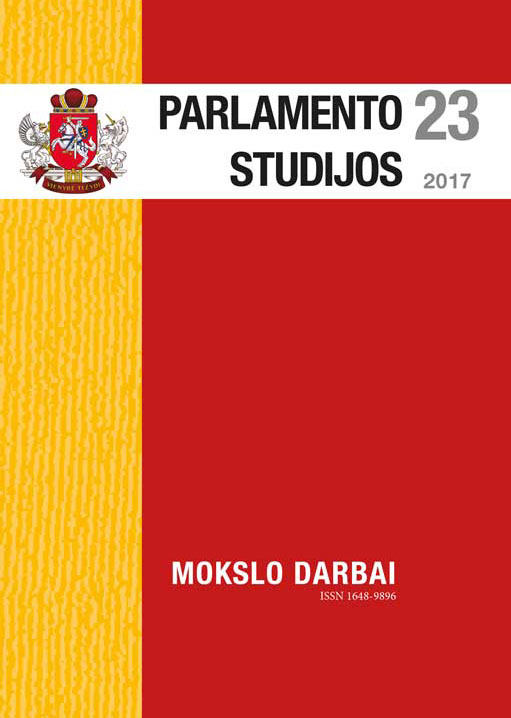Foundations of a Democratic State in the 1922 Constitution of the State of Lithuania From the Current Constitution
DOI:
https://doi.org/10.51740/ps.vi23.77Keywords:
principle of democracy, 1922 Constitution of the State of Lithuania, principle of the supremacy of the Constitution, respect for human rights and freedoms, principle of the separation of powers, 1992 Constitution of the Republic of LithuaniaAbstract
This article analyses the 1922 Constitution of the State of Lithuania according to its travaux préparatoires in terms of the features characterising the consolidation of three principles – principles of the supremacy of the Constitution, respect for human rights, and the separation of powers. It highlights the merits along with shortcomings of their consolidation in the light of the then period and the present-day perspective based on the 1992 Constitution currently in force. The 1922 Constitution of the State of Lithuania is the only democratically enacted Constitution of pre-war constitutional heritage to have consolidated democratic content and to have put into effect both fundamental principles of statehood – independence and democracy – proclaimed in Lithuania’s Act of Independence of 16 February 1918. Therefore, it is precisely the 1922 Constitution that laid down the beginnings of the constitutional democratic traditions of the modern Republic of Lithuania. From the 1922 Constitution, the 1992 Constitution currently in force adopted the tradition of the parliamentary republic, as well as the most valued elements of the principles of the supremacy of the Constitution, respect for human rights, and the separation of powers. The shortcomings of the 1922 Constitution of the State of Lithuania were resolved in the 1992 Constitution.








 The metadata of the scholarly journals and publications of the Lithuanian National Martynas Mažvydas Library is distributed by
The metadata of the scholarly journals and publications of the Lithuanian National Martynas Mažvydas Library is distributed by 